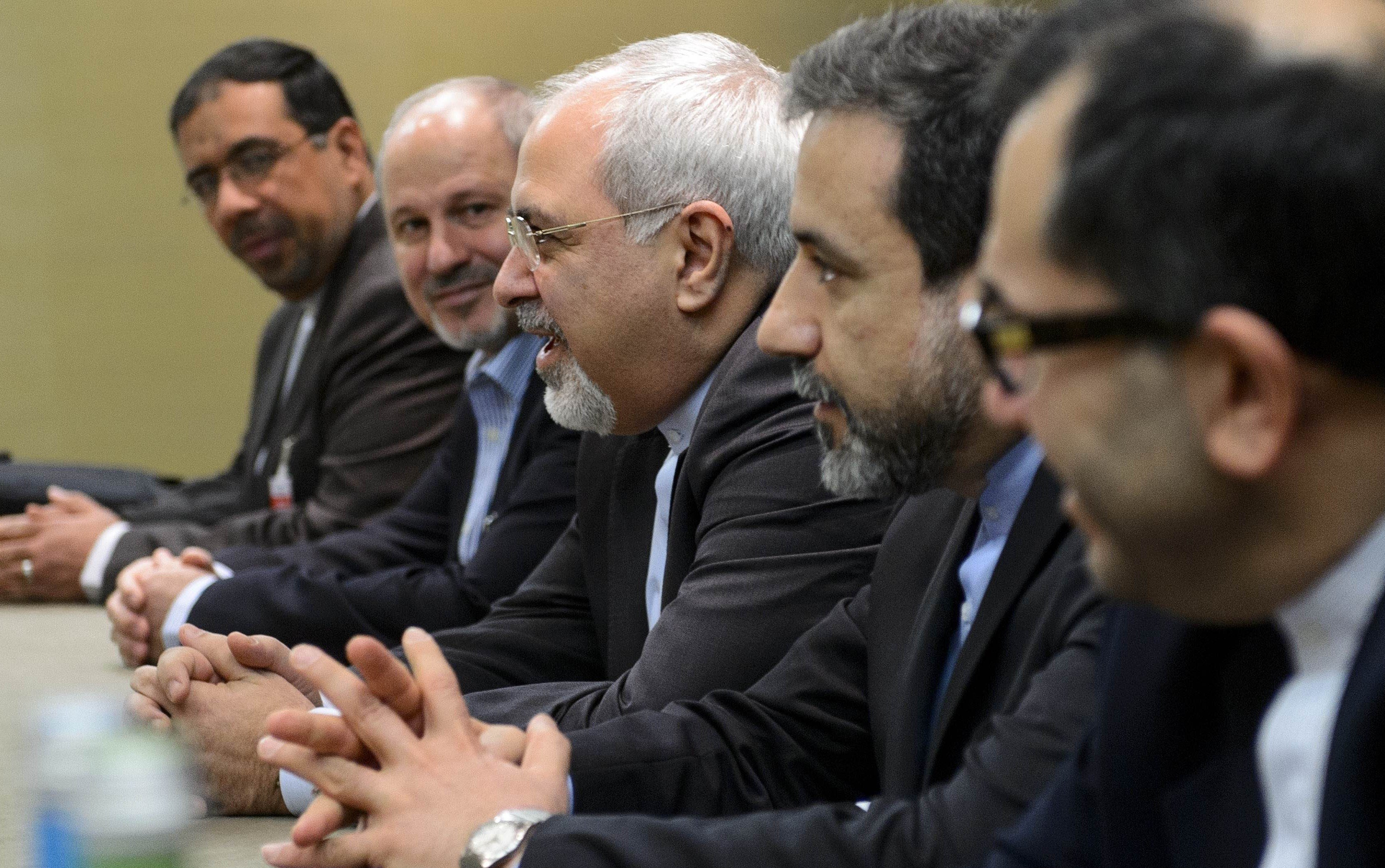

No sooner had the hopes soared for a historic interim deal on the Iranian nuclear programme on November 10 that they were dashed by French objections to the proposed deal. Only time will tell whether the November 10 constituted a huge missed opportunity or a nail in the coffin of slowly evolving comprehensive deal on the Iranian nuclear programme - with huge ramifications for regional politics in the coming decades.
The Geneva talks convened on November 10 centered on an interim six month deal before a broader understanding of comprehensive deal on the Iranian nuclear programme in return for relaxation of tough sanction regime. The interim deal, worked out between the US and Iran, and seemingly enjoying the concurrence of the five permanent Security Council members plus Germany, was expected to be inked on the day with the US secretary of state, John Kerry, flown in especially for the occasion.
However, hours before the deal, France raised last-minute objections which hinged on diluting the concessions implied in the document to Iran’s right to enrichment, Iranian 20 percent uranium enriched stockpile and on the continuing construction of plutonium capable Arak nuclear plant.
The raft of objections was so obstructive that negotiations had to be adjourned to assess the extent, and implications, of the French objections. The US negotiating team was also at odds with the Iranian interpretation of the Nuclear Non-Proliferation treaty (NPT) which gives the signatories inalienable right to enrichment.
Most seasoned observers see the US objections as unreasonable. More worryingly, the chances for a breakthrough are receding if the chain of events between the last and next round of negotiations are analysed a bit more closely.
Immediately after the Geneva talks failed, US Secretary of State, John Kerry, toured the Gulf states with an important stopover in Saudi Arabia -- determined opponents of the deal -- to probably discuss the post-Geneva scenario. In tandem, French Pesident François Hollande, also toured Israel to reiterate France’s tough stand on the Iranian nuclear negotiations.
Meanwhile, Israeli prime minister has been actively wooing US Congress and American Jewish leaders in a bid to tighten screws on Iran in order to set terms so punitive and humiliating for Iran that it makes it impossible for Iranian leadership and the hard line elements within the ruling elite to digest terms of the deal.
This troika of naysayers (in The Guardian’s Jonathan Steele’s formulation) may be getting close to generating enough momentum and propaganda in favour of a no-deal. Why this newly aligned troika is hell-bent on torpedoing the long-stalled deal. Each party has a lot to gain from a no deal scenario.
Israel is a long-standing opponent of Iran’s growing power in the Middle East. In particular, Israel is opposed to Iranian nuclear programme which it sees as an existential threat to its survival. That is why Israel has always pushed for a military solution of the Iranian nuclear issue even if it has to go alone. Saudi Arabia, for its own regional considerations, is apprehensive of Iran’s escalating influence in the region in the aftermath of non-military solution to the Syrian chemical weapons crisis which has put Iran in a pole position.
Moreover, as Jonathan Steele has pointed out, shutting Iran from oil export market through continuing economic sanctions serves Saudi interest in terms of higher oil revenues. France, keen to capitalise on growing fracture between Saudi Arab and the US over the Syrian crisis and wider regional issues, stands to gain in terms of more weapons sale contracts. In addition, France has an on-going defence pact with UAE which obliges it to pull itself behind the Gulf States in confrontational scenarios.
Knowing the high stakes involved, the US government is actively pursuing pro-deal mobilisation strategies. This has involved engagement with Congressional and Senate leaders to convince them of the need to refrain from passing any legislation for further sanctions at a time when the deal looks imminent. The US government is also lobbying for progressive Jewish groups to gain support for the proposed deal.
An increasing wind is being pumped into the sails of pro-deal camp by influential columnists and opinion-formers in the west. Simon Jenkins, a Guardian columnist, has advocated greater opening to the new Iranian leader. Similarly, Roger Cohen, of the New York Times, has demonstrated a consistent pro-deal streak in his columns. Roger believes that this is the best Iranian team of negotiators and an opportune moment for regional peace when a war weary US and sanctions weary Iran have every reason to sing from the same song sheet.
However, there are instances from the past which show that if this opportunity is passed up then another may not arrive for decades with disastrous consequences for the region.
David Ignatius of the Washington Post maintains that in 2003 a similar moment was at hand. On that occasion Israel and the US employed similar rough and tough tactics with the Iranian team of negotiators led by the current Iranian president, Hassan Roughen. Iran offered to limit its programme then.
Yet the US-Israeli combine pushed Iran into a situation where terms of the deal became domestically unpalatable for Iranian negotiators. (Israel seems to be resorting to the same strategy again). For his part, knowing the history of nuclear negotiation, Iranian President, Hasan Rouhani, has bent over backwards to pave way for the interim deal.
In the latest press reports, Iran’s negotiating team has even agreed to find a way around its insistence on Iran’s right to enrichment in addition to offering further concessions on limiting the programme to 3.5 percent uranium enrichment threshold, thus limiting the programme to strictly civilian level. These are huge concessions which must be constructively built upon by the P5+1.The only cheerful news is that P5+1 group is optimistic about the prospect of arriving at a satisfactory interim deal despite huge obstacles created by well-concerted campaign by deal-busters.